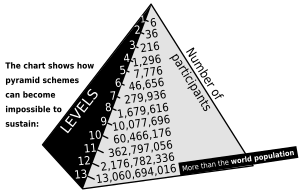
- Image via Wikipedia
I just had one of the best quiches I have ever tasted. It seemed to be puffed perfectly and filled with the most incredible egg and cheese concoction. I had my laptop out, but I really was only focused on enjoying the quiche. It looked like a crown, majestic and confident. I savored the quiche for the few minutes while I waited to meet with a man who could potentially help design and implement Open Spokes with our original vision.
The quiche proved its worth to me in a few seconds, and yet, it took Patrick and myself an entire hour to prove our worth to one another. We started with small talk, a little bit of personal history and shared knowledge about his wife (the connection that made this meeting possible). Then we dove right into pitching to one another from our different perspectives.
I was trying to pitch him on the idea of collaboratively answering questions through video and he was trying to pitch me on the idea that 3/4 of a degree in Computer Science was more than enough to work on the project, considering all of the other things that has done.
Proving ourselves wasn’t exactly a stated exercise, but it was pretty clear from the first few words that it is exactly what were working toward. I could see in his eyes that he was interested, and I kept on playing with that interest. I kept on trying to figure out just what he wanted to get out of working on Open Spokes. I kept trying to probe on exactly what he believed was of value in web development and in life. The hour was well spent because we did take the time to prove to one another that we could potentially have value to each other. We are now starting down the path of working with one another, but now what are we trying to prove?
After initially proving our worth to an institution or a person, what is our responsibility in continuing to prove our worth? Should we be proving other things as well in our relationships and our jobs? Is it possible that we start trying to proving that we are more than we claim to be once we have proven valuable enough to keep around?
When we prove our worth, we are claiming to be something. We are stating, for the record, that there are certain truths about who we are and what we can offer. And from that moment forward, we are trying to convince the people and institutions that initially put faith in us that we are more than that. We start trying to explore exactly what is possible given the limits of what we have claimed, and then we start to build out past those limits. We do this because we don’t want to be typecast. We do this because we know that to maintain the value that we claim, we must start meeting the value that others will need in the future.
If we become satisfied with what we have proven and what we have claimed to be, we will make ourselves obsolete in the process. We will continue to have that same value, but because others will shift their needs, we will become less valuable.
It isn’t that we need to continually prove our worth on the things that we said to start off the relationship. There is a level of trust that is build upon that initial proof. Instead, we must prove that we don’t have a limit to what we are worth. We will continue to be interesting and engaging. We will continue to be someone to connect with on the new things happening within an organization or a single relationship.
And that is why my wife is the most important person in my life. She is continually figuring out news ways to be of value in whatever I decide to pursue. She is the subtle pressure that I need to continue to think and imagine new projects and execute the ones that I already have going. She is the time away from those same projects when I rub her feet and sit on the couch to watch a Dexter marathon. The proves herself every day without even having to think about it because she is meeting me half way on everything we do together.
While I don’t need another wife or another relationship like a marriage, I want all of my working and community relationships to be this dynamic. I want people to constantly prove their worth to me, and I want to do the same for them. I want the moments that we have together to be filled with trying to see the needs that we have for one another and figuring out ways to fill them.
I want the companies and products that I interact with to see my worth and to know their own, and to never be satisfied with either set. I want to never feel taken for granted and I want them never feel that from me. I want interactive relationships that evolve over time, continually growing and contracting to meet my current interests and priorities. If all relationships were proven in this way, I wouldn’t have to agonize over where I stood in any one of them. I would never again have to push forward without the knowledge that I have a partner that is looking for give and take.
So, I’m glad I found it today, and I will continue to look for both quiche and people that I can have this kind of relationship with.

![Reblog this post [with Zemanta]](https://i0.wp.com/img.zemanta.com/reblog_e.png?w=1225)


